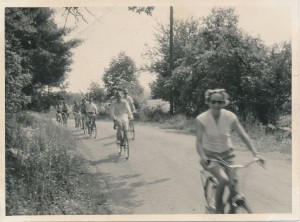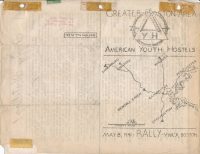The photographs and stories gathered at the Nahant Mass. Memories Road Show are available online now for research.
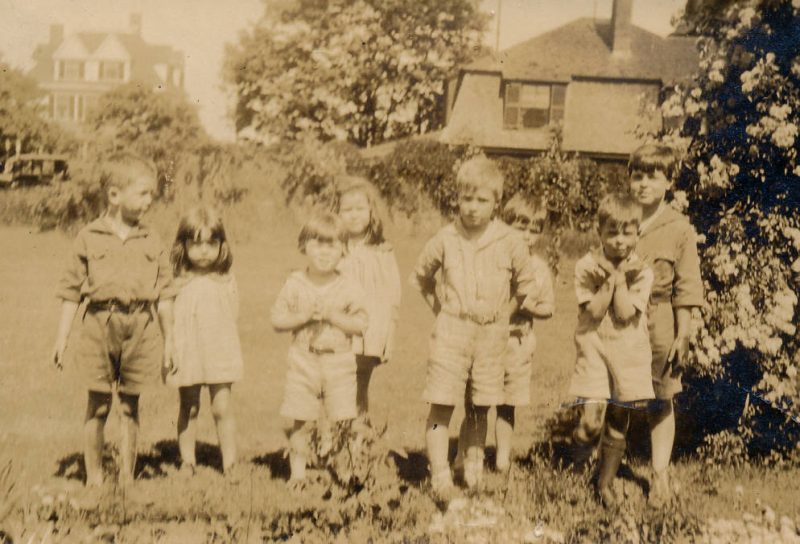
Summer friends, 1924. ‘Gathering of summer playmates on grounds of Motley family home. These were my mom’s generation of friends. Pictured, from left to right: Herbert Motley, Eleanor Warren Motley, George Richardson, Elizabeth Motley, Pierson Richardson, Elliot Richardson, David Devens, and Pat Devens.’ Contributor: Kristy Lee.
Held at the Nahant Town Hall on Saturday, April 1, 2017, the event was organized by the Nahant Public Library, 01908, Nahant Council on Aging, Nahant Historical Society, Nahant Public Schools, Nahant Safer Waters in Massachusetts, Inc. (S.W.I.M.), and Northeastern University’s Marine Science Center with funding from the Friends of Nahant Public Library and the Nahant Cultural Council. Over twenty local volunteers came out on a snowy spring day to collaborate with a team of UMass Boston staff members and public history graduate students, as well as “Roadies” from past Mass. Memories Road Show events, to welcome more than 100 adults and children with connections to the town on the North Shore of Boston.
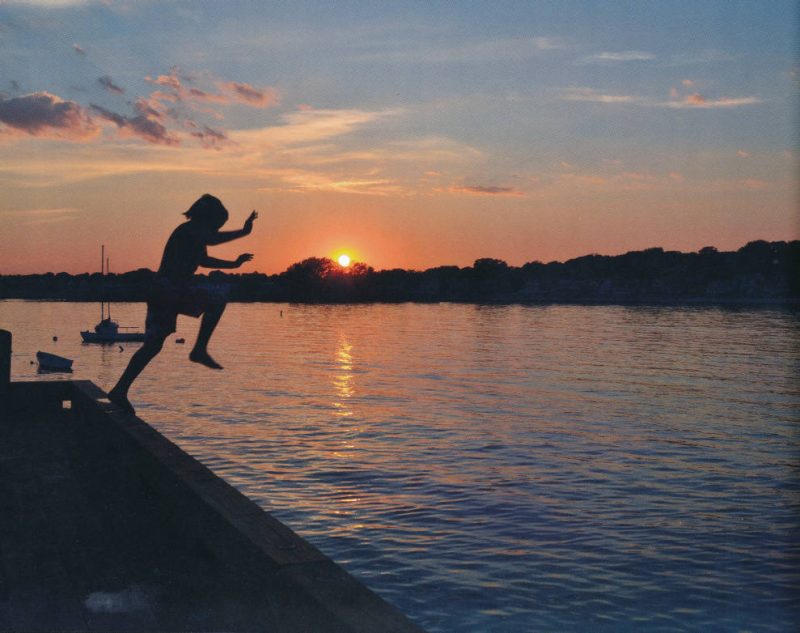
Nahant summer rite of passage, 2014. ‘This is a rite of passage growing up here in Nahant–jumping off the wharf! My son relishes in every summer moment. Pictured: Casey DeCamp.’ Contributor: Liz Carlson.
Participants contributed images of everyday life in this tiny island community over the years. Summertime family gatherings are especially well represented in the collection. Many individuals shared memories of their enjoyment of the island’s natural beauty–and photographs capturing sunsets, beaches, and scenic views from their kitchen windows.
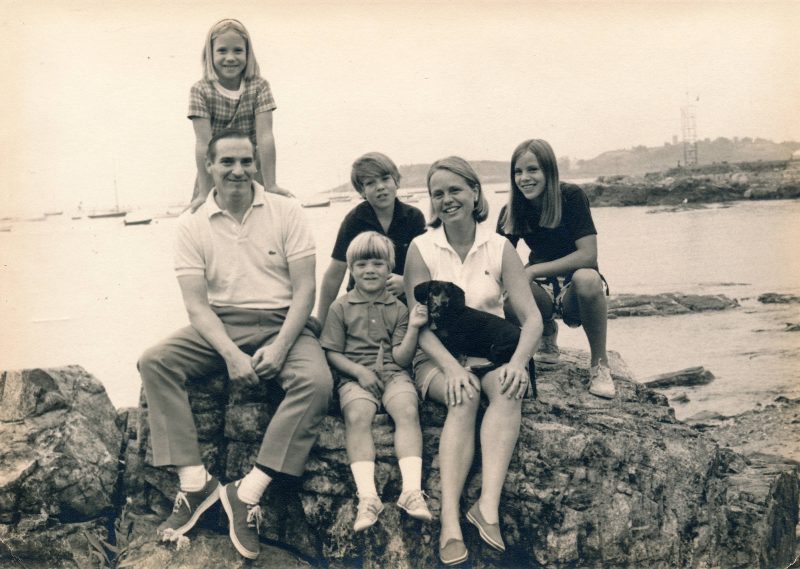
Hunnewell family photo, 1972. ‘Family photo on Curlew Beach where we played and swam.’ Contributor: Edith E. Hunnewell.
Several photographs document informal gatherings of teenagers at the local convenience store and organized activities of groups such as the Girl Scouts, the Nahant Women’s Club and the Knights of Columbus. Many images depict Nahant residents’ efforts to clean up the ocean waters around the island as well as the scientific research and education programs of Northeastern University’s Marine Science Center.
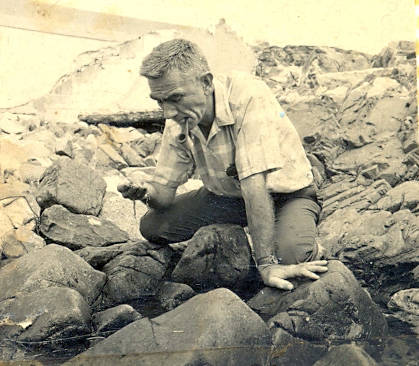
Tidepooling with Doc Riser, founding director of the Northeastern University Marine Science Center, 1960s or 1970s. ‘This picture means a lot to me because it exemplifies the perpetual curiosity and love for science that made him an exemplary leader and inspired future generations of marine scientists.’ Contributor: Val Perini.
Browse the Nahant Mass. Memories Road Show collection.
The Mass. Memories Road Show is a statewide digital history project that documents people, places and events in Massachusetts history through family photographs and stories. In partnership with teams of local volunteers, we organize public events to scan family and community photographs and videotape “the stories behind the photos.” The images and videos are indexed and incorporated into an online educational database. Since its launch, the project has gathered more than 9,000 photographs and stories from across the state. It is supported in part by the Patricia C. Flaherty ’81 Endowed Fund at UMass Boston.
University Archives & Special Collections in the Joseph P. Healey Library at UMass Boston was established in 1981 as a repository to collect archival material in subject areas of interest to the university, as well as the records of the university itself. The mission and history of UMass Boston guide the collection policies of University Archives & Special Collections, with the university’s urban mission and strong support of community service reflected in the records of and related to urban planning, social welfare, social action, alternative movements, community organizations, war and social consequence, and local history related to neighboring communities. To learn more, visit blogs.umb.edu/archives.









